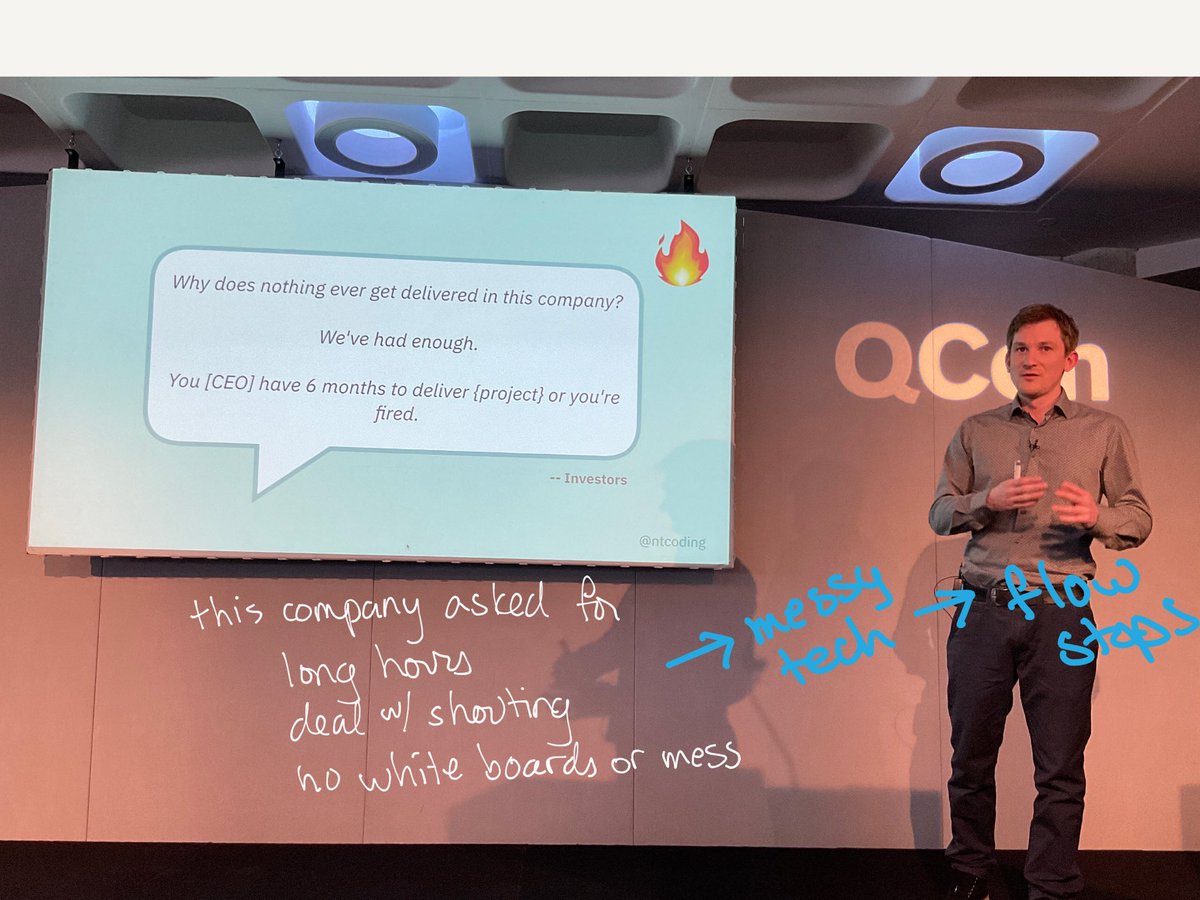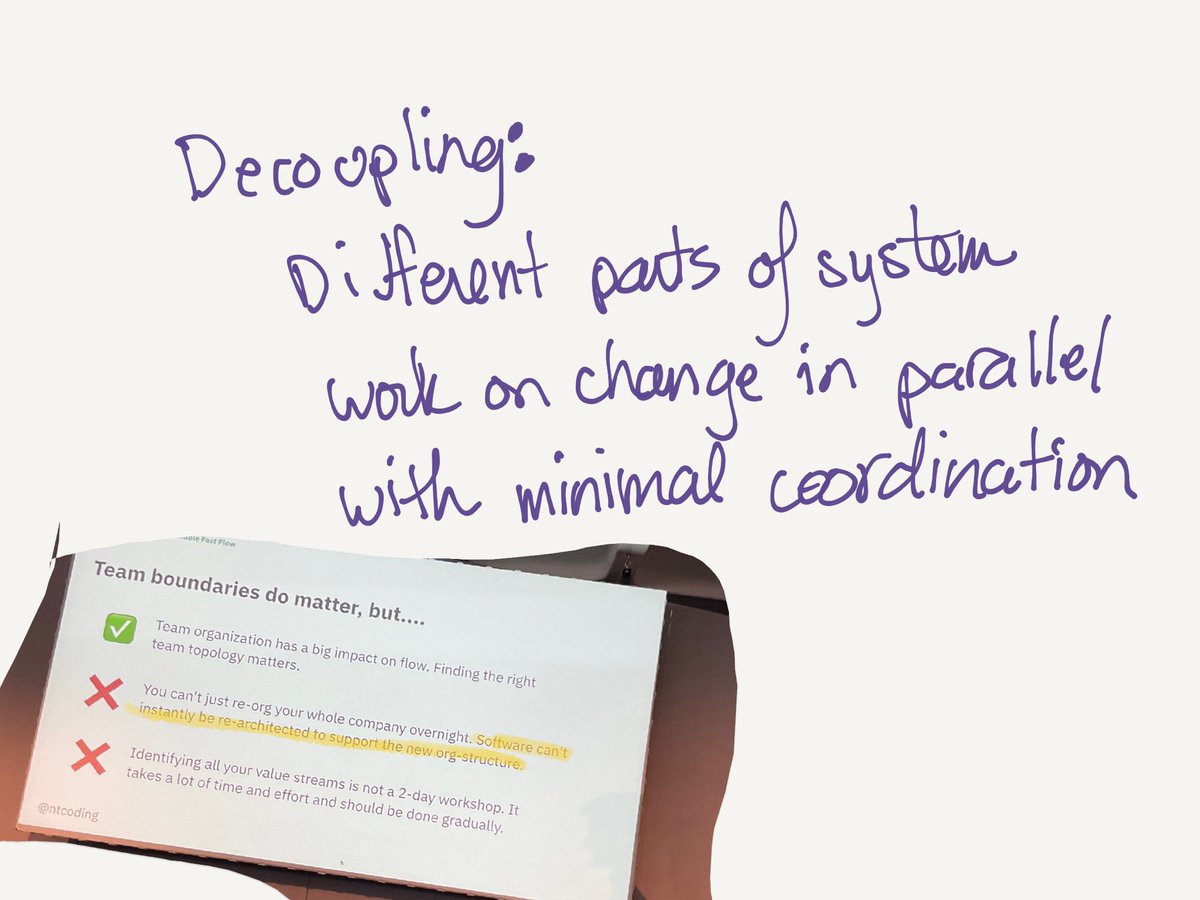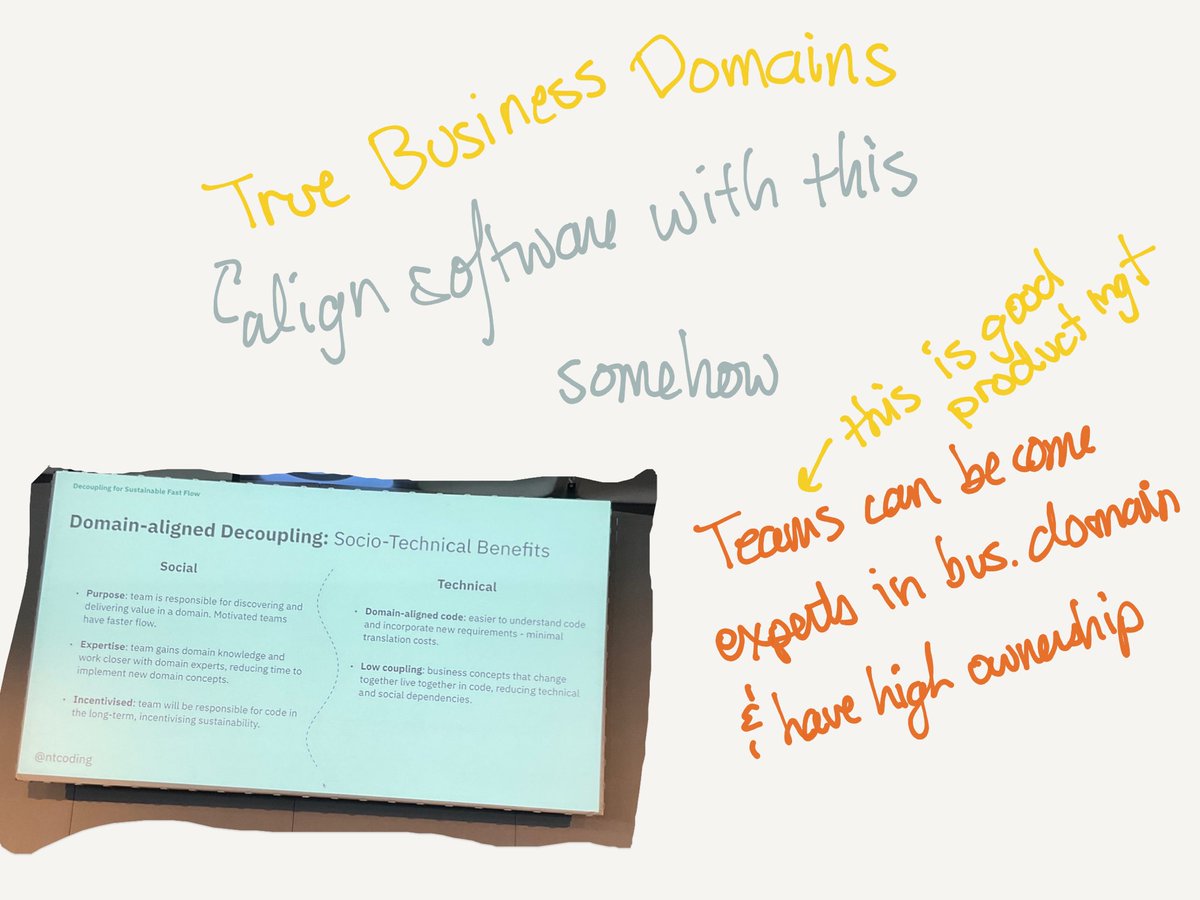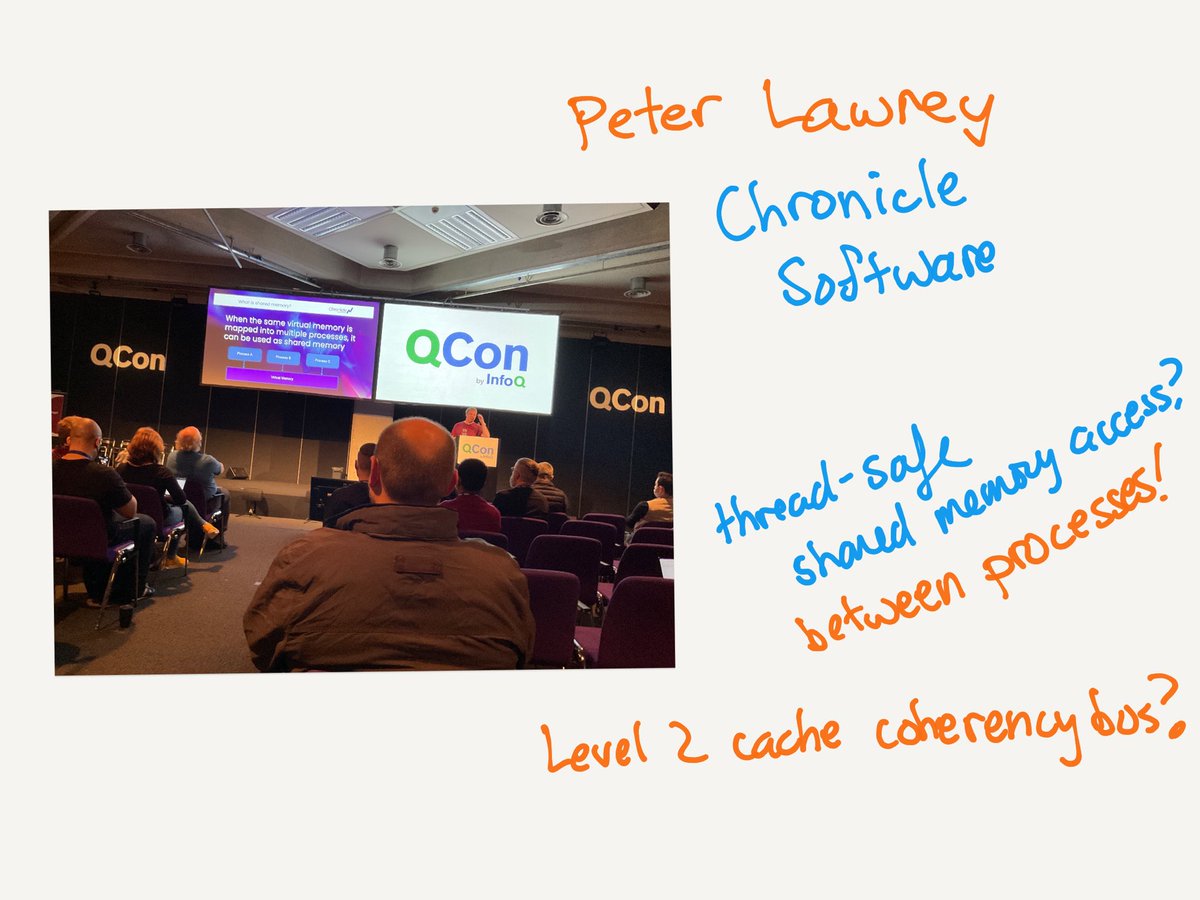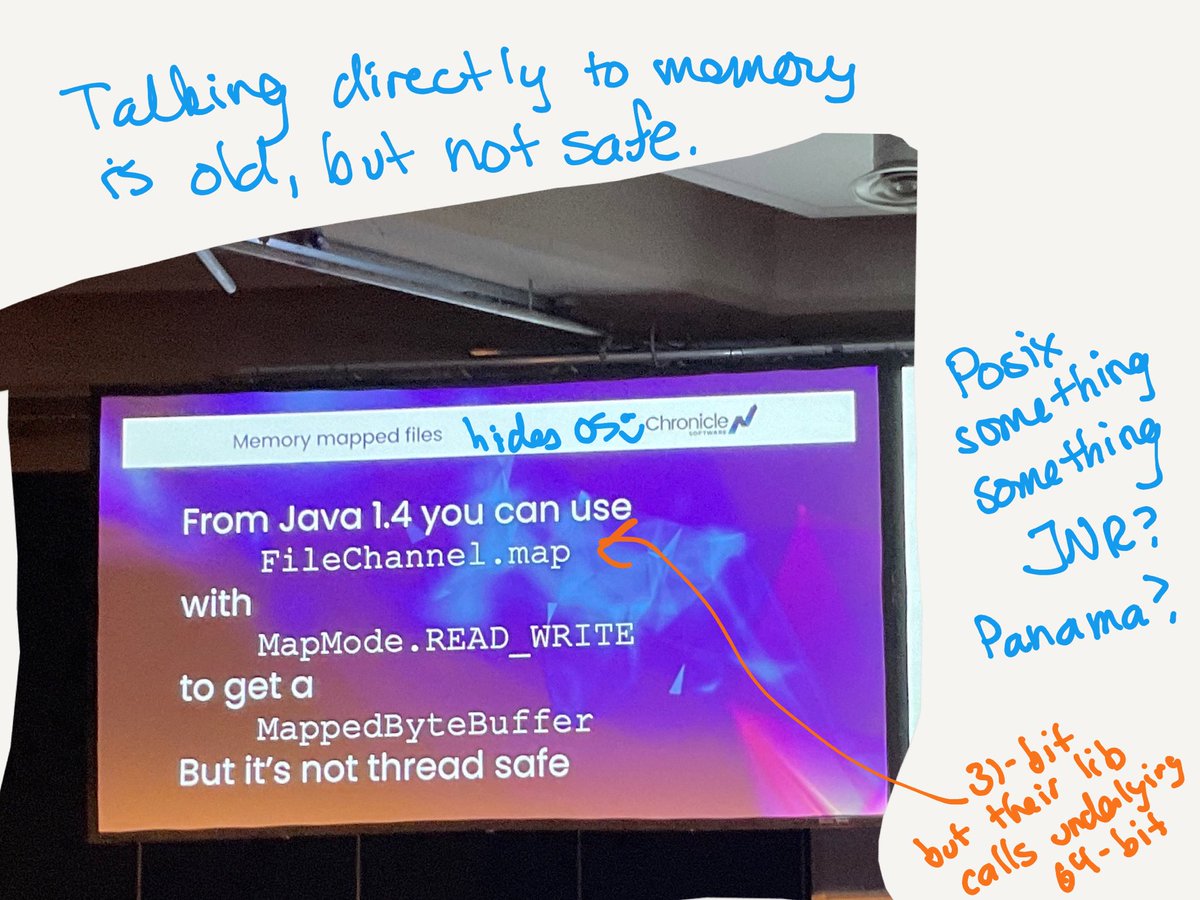
This morning at #QConLondon , @glenathan tells a story of an experiment at Circle CI: for this greenfield project, let’s have NO LOGGING. 





Instead of logs, events! that make traces!
“Events are good logs.”
They’re data-first instead of human-first; they wrap units of work with durations; they can be explored multiple ways
@glenathan #QConLondon

“Events are good logs.”
They’re data-first instead of human-first; they wrap units of work with durations; they can be explored multiple ways
@glenathan #QConLondon


They found best practices like: wrap each unit of work; report errors in a standard field; use span names that are specific enough to tell you what’s happening but general enough for useful grouping.
~ @glenathan #QConLondon


~ @glenathan #QConLondon


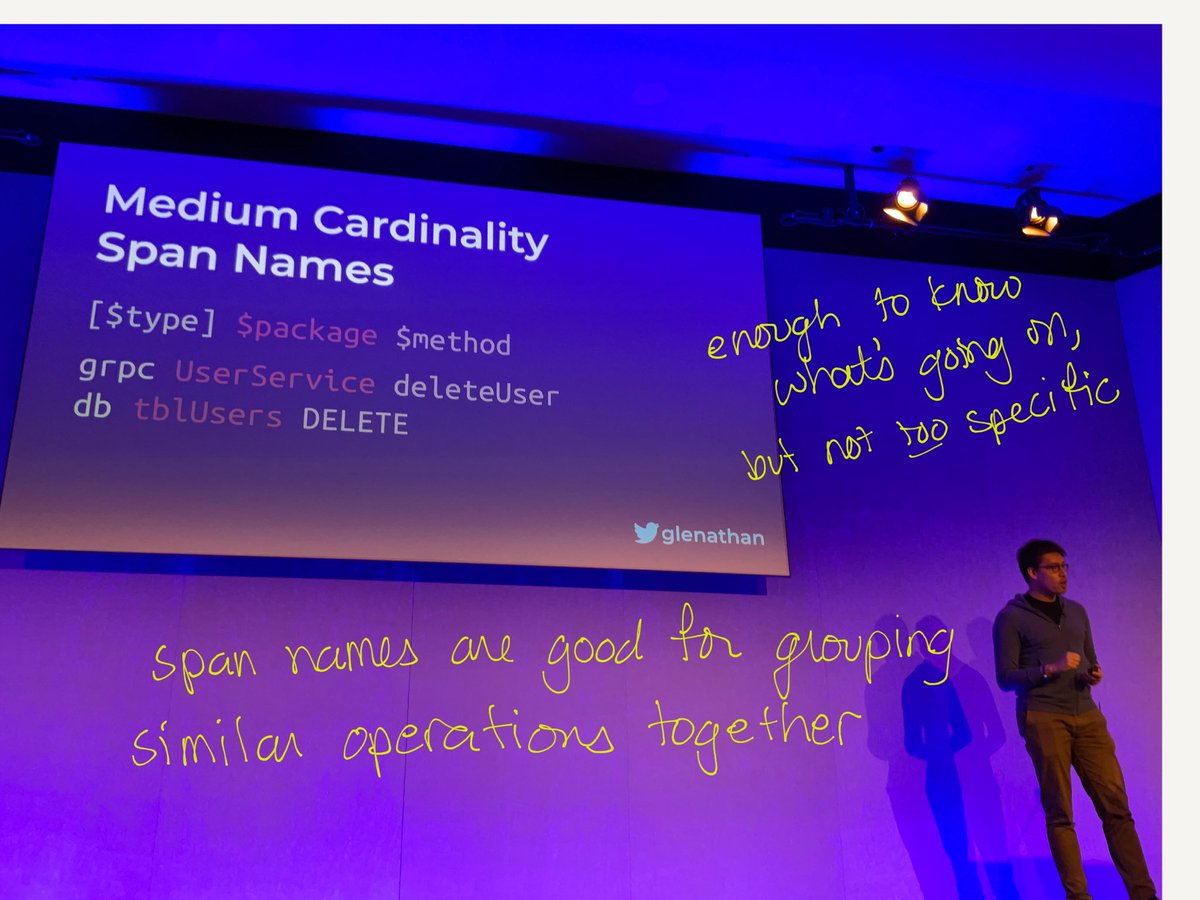
Then they tuned the span creations so that there wasn’t a bunch of duplicate-looking ones. Instead of repetitive spans, add more attributes.
“Add every identifier you have in your system” to help find problems.
@glenathan #QConLondon

“Add every identifier you have in your system” to help find problems.
@glenathan #QConLondon


For reassurance, they sent the events to their existing Elasticsearch as well as to @honeycombio .
But nobody looked at them there, so they turned it off later.
But nobody looked at them there, so they turned it off later.

And they emitted some of their span attributes to statsd for metrics, for the constantly-updating dashboards.
This gave them dashboards about what the service was doing.

This gave them dashboards about what the service was doing.


If you look at the “three pillars” of observability from the top,
it’s all the same events.
@glenathan #QConLondon
it’s all the same events.
@glenathan #QConLondon

Thinking trace-first proved useful.
Putting all this thought into a new way of doing things was meh —like, it was better, but not revolutionary.
(darn)


Putting all this thought into a new way of doing things was meh —like, it was better, but not revolutionary.
(darn)



• • •
Missing some Tweet in this thread? You can try to
force a refresh




















